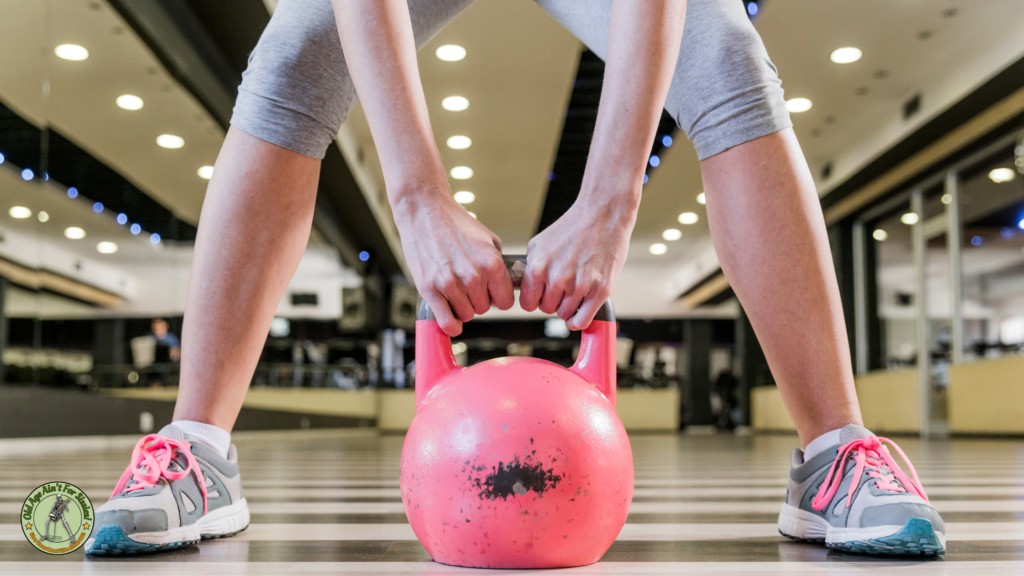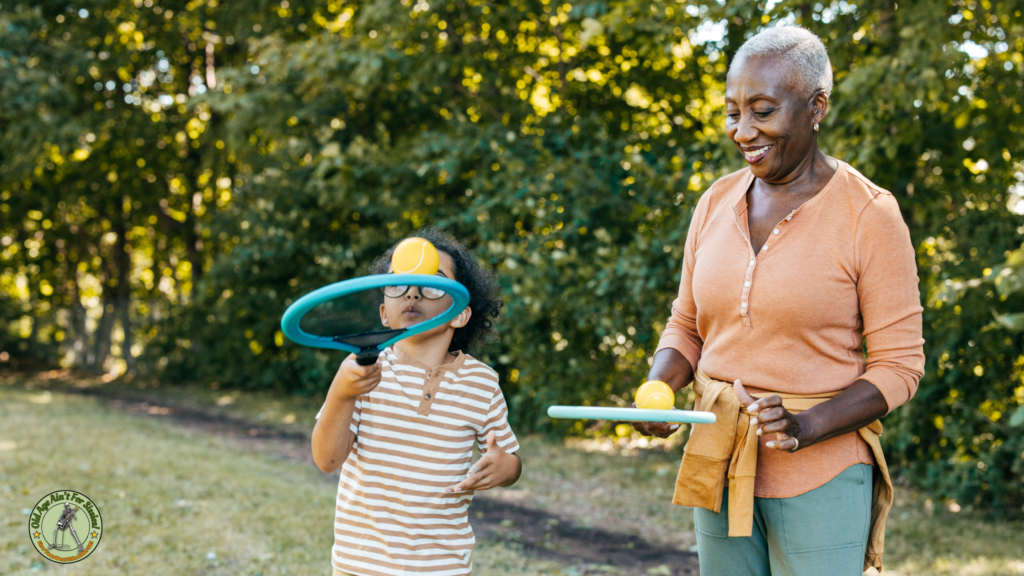Introduction
Going into your old age and maintaining health and activity becomes increasingly important.
This aging journey is unique for everyone, but by adopting some simple yet effective strategies you can significantly enhance your quality of life in your older years.
This comprehensive guide explores five straightforward ways to stay healthy and active, offering practical tips and insights to help you thrive.
The following sections will delve into the specifics of maintaining a balanced diet, engaging in regular physical activity, prioritizing mental health, getting regular health check-ups, and ensuring adequate sleep.
Each topic is expanded upon to provide you with a thorough understanding of how to implement these practices in your daily life, and by the end of this guide, you’ll have a wealth of knowledge to support a vibrant and fulfilling lifestyle in your later.

Table Of Contents.
- Introduction
- 1. Maintain a Balanced Diet
- Understanding Nutritional Needs
- The Role of Vitamins and Minerals
- Benefits of Fiber
- Hydration is Key
- Tips for a Balanced Diet
- 2. Engage in Regular Physical Activity
- Importance of Exercise
- Types of Physical Activities
- Tailoring Exercise to Individual Needs
- Overcoming Barriers to Exercise
- Tips for Staying Active
- 3. Prioritize Mental Health
- Cognitive Health and Aging
- Stress Management
- Social Connections
- Pursuing Hobbies and Interests
- Tips for Mental Well-being
- 4. Get Regular Health Check-ups
- Importance of Preventive Care
- Key Screenings and Vaccinations
- Building a Relationship with Healthcare Providers
- Managing Chronic Conditions
- Tips for Navigating Healthcare
- 5. Ensure Adequate Sleep
- Understanding Sleep Needs in Older Adults
- Creating a Sleep-Friendly Environment
- Dealing with Sleep Disorders
- The Role of Naps
- Tips for Better Sleep
- Enhancing Quality of Life in Later Years
- FAQ
1. Maintaining A Balanced Diet
1.1 Understanding Nutritional Needs.
As we age, our nutritional needs change. Your metabolism starts slowing down, muscle mass decreases, and your body’s ability to absorb certain nutrients declines.
This makes it essential in old age to focus on nutrient-dense foods that will provide all the necessary vitamins, minerals, and other nutrients without excessive calories.
A balanced diet can help you manage weight, reduce the risk of chronic diseases, and support your overall health.
1.2 The Role Of Vitamins And Minerals.
Vitamins and minerals play a crucial role in maintaining your health, especially as an older adult.
Calcium and Vitamin D are vital for your bone health, reducing the risk of osteoporosis.
Vitamin B12 is important for your brain function and energy production, while potassium helps to regulate your blood pressure, also by including a variety of fruits, vegetables, lean proteins, and whole grains in your diet can ensure you get a broad spectrum of these essential nutrients
1.3 Benefits Of Fiber.
Fiber is another critical component of a balanced diet for older adults as it aids in digestion, helps you maintain a healthy weight, and can lower the risk of heart disease and type 2 diabetes.
Foods that are rich in fiber include whole grains, fruits, vegetables, and legumes.
Aim to incorporate these into your daily meals to promote your digestive health and overall well-being.
1.4 Hydration Is Key.
Staying hydrated is an often overlooked factor but is crucial for your health, especially if you are an older adult.
Being dehydrated can lead to urinary tract infections, kidney stones, and other serious conditions.
But drinking water regularly throughout your day, even if you don’t feel thirsty, can help maintain hydration.
Additionally, consuming water-rich foods like cucumbers, watermelon, and oranges can also contribute to your overall fluid intake.
1.5 Tips For A Balanced Diet.
- Plan Meals: Planning your meals can help ensure you include a variety of nutrients. Consider preparing your meals in batches to save time and effort.
- Choose whole foods: Opt For Whole, unprocessed foods over processed ones. This will help reduce your intake of added sugars, salt, and unhealthy fats.
- Portion Control: Be mindful of portion sizes to avoid overeating. Smaller, more frequent meals can help manage your hunger and maintain energy levels.
- Listen to your body: Pay attention to any hunger and fullness cues. Eating when you’re hungry and stopping when you’re full can prevent overeating.
- Consult a nutritionist: If you’re unsure about your dietary needs, consider consulting a registered nutritionist who can provide personalized guidance.

2. Engage In Regular Physical Activity
2.1 Importance Of Exercise.
Regular physical activity is crucial for maintaining health and mobility in older age.
Exercise helps manage your weight, reduces the risk of chronic diseases, improves your mental health, and enhances your overall quality of life. It also helps maintain muscle mass, bone density, and joint flexibility, which are vital for daily functioning.
2.2 Types Of Physical Activities.
- Aerobic Exercise: Activities like walking, swimming, and cycling
- Strength Training: Lifting weights or using resistance bands helps maintain muscle mass and strength. Aim to include strength training exercises at least two days a week.
- Balance Exercises: Activities like yoga and tai chi improve balance and reduce the risk of falls. These can be particularly beneficial for older adults
- Flexibility Exercises: Stretching exercises help maintain flexibility and reduce stiffness. Incorporate these into your routine several times a week.
2.3 Tailoring Exercise To Individual Needs.
It’s important to choose activities that you enjoy doing and that are appropriate for your fitness level.
Start slowly and then gradually increase the intensity and duration of your workouts.
If you have any health conditions or concerns, then consult your healthcare provider before starting a new exercise program.
2.4 Overcoming Barriers To Exercise
Common barriers to exercise include lack of motivation, fear of injury, and physical limitations. Finding a workout buddy, setting realistic goals, and choosing activities you enjoy can help overcome these barriers. Additionally, many communities offer fitness classes specifically designed for older adults, which can provide a safe and supportive environment for exercise.
- 1. Set Realistic Goals: Start with small, achievable goals and gradually increase the intensity and duration of your workouts.
2. Find a Workout Buddy: Exercising with a friend can make workouts more enjoyable and provide accountability.
3. Incorporate Activity into Daily Life: Look for opportunities to be active throughout the day, such as taking the stairs instead of the elevator or going for a walk after meals.
4. Listen to Your Body: Pay attention to how your body feels during and after exercise. If you experience pain or discomfort, adjust your activities accordingly.
5. Stay Consistent: Consistency is key to reaping the benefits of exercise. Aim to be active most days of the week.

3. Prioritize Mental Health.
3.1 Cognitive Health And Aging.
Maintaining cognitive health is just as important as physical health in older age. Engaging in activities that challenge your brain can help keep your mind sharp and reduce the risk of cognitive decline. Puzzles, reading, learning new skills, and social interactions are all beneficial for brain health.
3.2 Stress Management.
Chronic stress can have a negative impact on both mental and physical health. Practicing relaxation techniques such as deep breathing, meditation, and mindfulness can help manage stress. Additionally, engaging in hobbies and activities that you enjoy can provide a sense of purpose and relaxation.
3.3 Social Connections.
Staying socially active is crucial for mental well-being. Maintaining strong relationships with family and friends, participating in community activities, and joining clubs or groups can help prevent loneliness and isolation. Social interactions provide emotional support, increase feelings of belonging, and can even improve cognitive function
3.4 Pursuing Hobbies And Interests.
- Stay Connected: Make an effort to stay in touch with family and friends. Regular social interaction can boost mood and mental health.
- Keep Learning: Challenge your brain by learning new skills or taking up new hobbies. Lifelong learning can help keep your mind sharp.
- Practice Mindfulness: Mindfulness practices, such as meditation and deep breathing, can help reduce stress and improve mental clarity.
- Seek Support: If you’re feeling overwhelmed or struggling with your mental health, don’t hesitate to seek support from a mental health professional.
- Stay Positive: Focus on the positive aspects of your life and practice gratitude. Positive thinking can improve mental well-being and overall outlook on life.
4. Get Regular Health Check-ups.
4.1 Importance Of Preventative Care.
Regular health check-ups are essential for early detection and management of health issues. Preventive care can help identify potential problems before they become serious, allowing for timely intervention and treatment. It also provides an opportunity to discuss any health concerns with your healthcare provider.
4.2 Key Screenings And Vaccinations.
As you age, certain health screenings and vaccinations become more important. These may include blood pressure checks, cholesterol screenings, diabetes screenings, bone density tests, and cancer screenings. Vaccinations such as the flu shot, pneumonia vaccine, and shingles vaccine are also recommended for older adults.
4.3 Building A Relationship With Healthcare Providers.
Having a good relationship with your healthcare provider is crucial for managing your health. Regular visits allow your provider to get to know you and your health history, making it easier to address any concerns. Be open and honest with your provider about your health and any changes you may be experiencing.
4.4 Managing Chronic Conditions.
If you have chronic conditions such as diabetes, hypertension, or arthritis, regular check-ups are essential for managing these conditions effectively. Your healthcare provider can help you develop a treatment plan, monitor your condition, and make any necessary adjustments to your medications or lifestyle
4.5 Tips For Navigating Healthcare.
- Prepare for Appointments: Make a list of any questions or concerns you have before your appointment. Bring a list of your medications and any recent health records.
- Be Proactive: Take an active role in your healthcare by staying informed about your health conditions and treatments.
- Follow-Up: After your appointment, follow up on any recommendations or referrals. Keep track of your test results and appointments.
- Communicate: Don’t hesitate to ask questions or discuss any concerns with your healthcare provider. Clear communication is key to effective healthcare.
- Stay Organized: Keep a record of your medical history, medications, and any health changes. This can help you stay on top of your health and make informed decisions.
5. Ensure Adequate Sleep.
5.1 Understanding Sleep Needs In Older Adults.
Sleep needs can change as we age, and many older adults experience difficulties with sleep. While 7-9 hours of sleep per night is generally recommended, individual needs can vary. Quality of sleep is also important, as restorative sleep supports physical and mental health.
5.2 Creating A Sleep-Friendly Environment.
A conducive sleep environment can significantly impact sleep quality. Ensure your bedroom is quiet, dark, and cool. Invest in a comfortable mattress and pillows, and minimize exposure to screens and bright lights before bedtime. Establishing a regular sleep routine can also help regulate your sleep-wake cycle.
5.3 Dealing With Sleep Disorders.
Sleep disorders, such as insomnia, sleep apnea, and restless leg syndrome, are common in older adults. If you’re experiencing persistent sleep problems, it’s important to seek medical advice. Treatment options may include lifestyle changes, medications, or the use of sleep aids such as CPAP machines for sleep apnea.
5.4 The Role Of Naps.
Short naps can be beneficial for older adults, especially if nighttime sleep is disrupted. However, avoid long or late-afternoon naps, as they can interfere with nighttime sleep. Aim for 20-30 minute naps to boost energy and alertness without affecting your nighttime sleep.
5.5 Tips For Better Sleep.
- Stick to a Schedule: Go to bed and wake up simultaneously every day, even on weekends.
- Limit Stimulants: Avoid caffeine and alcohol in the hours leading up to bedtime.
- Stay Active: Regular physical activity can promote better sleep, but avoid vigorous exercise close to bedtime.
- Relax Before Bed: Develop a relaxing bedtime routine like reading a book or taking a warm bath.
- Manage Stress: Stress and anxiety can interfere with sleep. Practice relaxation techniques such as deep breathing, meditation, or journaling.

FAQ
1. What are the best exercises for older adults?
The best exercises for older adults include a combination of aerobic activities (like walking and swimming), strength training (using weights or resistance bands), balance exercises (like yoga or tai chi), and flexibility exercises (such as stretching). It’s important to choose activities that are enjoyable and suitable for your fitness level.
2. How can I improve my diet as I get older?
Improving your diet involves focusing on nutrient-dense foods, such as fruits, vegetables, lean proteins, and whole grains. Pay attention to portion sizes, stay hydrated, and limit processed foods high in added sugars, salt, and unhealthy fats. Consulting with a nutritionist can provide personalized dietary guidance
3. What are some ways of managing stress in older age?
Managing stress can be achieved through relaxation techniques like deep breathing, meditation, and mindfulness. Staying socially connected, pursuing hobbies, and maintaining a positive outlook are also effective ways to manage stress. If stress becomes overwhelming, seeking support from a mental health professional can be beneficial.
4. How often should older adults get health check-ups?
The frequency of health check-ups can vary based on individual health needs, but it’s generally recommended to have a check-up at least once a year. Regular screenings and vaccinations are important for preventive care. Consult your healthcare provider to determine the appropriate schedule for your specific health conditions.
5. What can I do if I have trouble sleeping?
If you have trouble sleeping, try establishing a regular sleep routine, creating a sleep-friendly environment, and practicing relaxation techniques before bed. Avoid stimulants like caffeine and alcohol close to bedtime. If sleep problems persist, seek medical advice to identify and address any underlying sleep disorders.
Enhancing Quality Of Life In Old Age.
Maintaining your health and activity in older age is more than just your physical well-being. It also encompasses your mental, emotional, and social aspects of life.
By focusing on a balanced diet, regular physical activity, mental health, preventive healthcare, and quality sleep, you can enhance your quality of life and enjoy your later years to the fullest. Each component works together to support overall well-being, making it possible to live your best life in old age.



